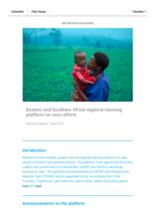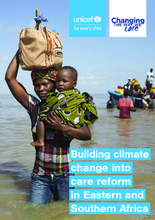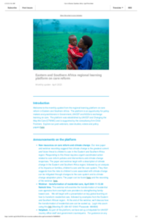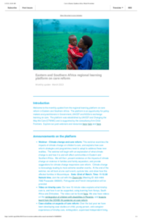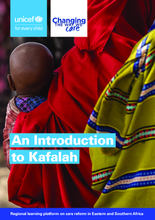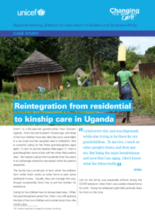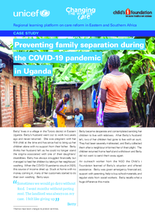Displaying 161 - 170 of 1622
This webinar provided an opportunity for the care community to share experiences on the transformation of residential care.
This UNICEF/CTWWC paper argues that climate change is the greatest current and future threat to children’s care in the Eastern and Southern Africa region. Responding to this threat requires urgent coordinated action related to care reform policies and interventions and climate change responses.
This is the monthly update of the Eastern and Southern Africa Regional Learning Platform published in April 2023.
In this course you will learn from Ekisa Ministries, a nonprofit organization located in Jinja, Uganda, that has been working with children with disabilities for over a decade. The hope is that you will finish this course with an understanding of what it may look like for your organization to incorporate children with disabilities and help them find their way home.
This is the monthly update of the Eastern and Southern Africa Regional Learning Platform published in March 2023.
This paper aims to contribute to a better understanding of the nature and characteristics of Kafalah in Eastern and Southern Africa and identify effective strategies to support Kafalah.
In this short video, practitioners from across the region discuss why supporting kinship care is so important, the support needs of kinship care families, and lessons learnt in supporting kinship care.
This case study details the experience of Attim, a 54-year-old grandmother from Eastern Uganda who provides care for her grandchildren after they left residential care. Social workers in Uganda often find that placement with extended family members is the most appropriate option for children leaving residential care.
This case study tracks the impact of family support services to a Ugandan mother and her family during the COVID-19 pandemic in an effort to prevent family separation.

